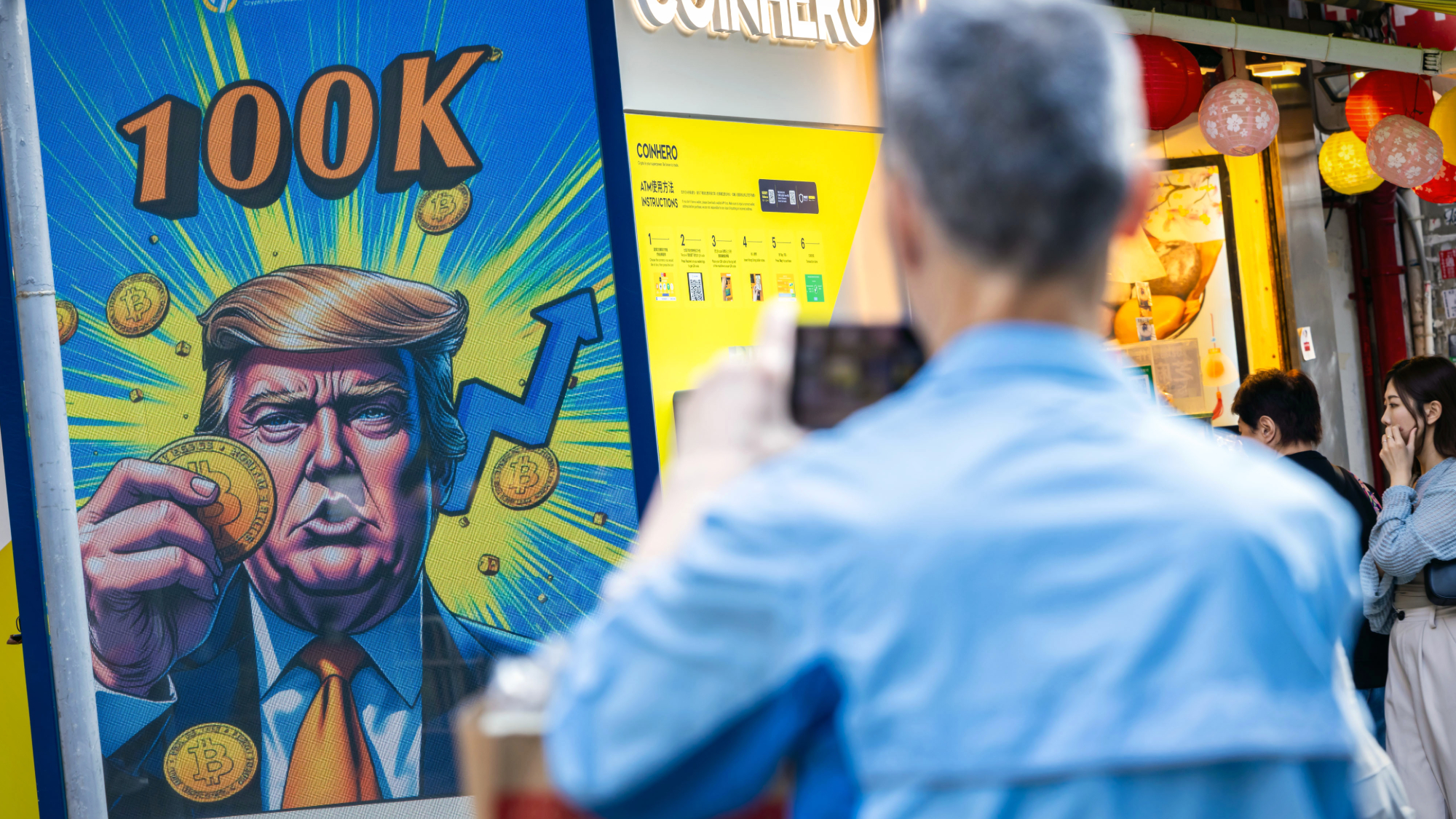Bitcoin surges above $100k in post-election rally
Investors are betting that the incoming Trump administration will embrace crypto


A free daily email with the biggest news stories of the day – and the best features from TheWeek.com
You are now subscribed
Your newsletter sign-up was successful
What happened
Bitcoin topped $100,000 for the first time Wednesday, hours after President-elect Donald Trump said he would nominate cryptocurrency advocate Paul Atkins to chair the Securities and Exchange Commission.
Who said what
Wednesday's high-water mark — $103,713 for a single bitcoin — capped an "extraordinary rally since Election Day," when the world's largest cryptocurrency was trading at $69,374, The Wall Street Journal said. A "wave of campaign spending" by crypto firms helped send 298 pro-crypto lawmakers to Congress and Trump to the White House. Trump in turn promised to make the U.S. "the crypto capital of the planet" and create a "strategic reserve" of bitcoin.
The crypto industry wants legislative and regulatory changes that, "generally speaking, aim for an increased sense of legitimacy without too much red tape," The Associated Press said. Atkins, a former SEC commissioner who co-chairs the Chamber of Digital Commerce's Token Alliance, is expected to be much friendlier to the industry than outgoing SEC Chair Gary Gensler.
The Week
Escape your echo chamber. Get the facts behind the news, plus analysis from multiple perspectives.

Sign up for The Week's Free Newsletters
From our morning news briefing to a weekly Good News Newsletter, get the best of The Week delivered directly to your inbox.
From our morning news briefing to a weekly Good News Newsletter, get the best of The Week delivered directly to your inbox.
What next?
Bitcoin, worth about $5,000 in early 2020, "now stands as arguably the most successful investment product of the last 20 years," The New York Times said. It also "remains prone to extreme volatility," significantly "contributes to climate change" has "long been used by scammers and thieves." But "who can prohibit it?" Russian President Vladimir Putin asked Wednesday, according to Reuters. "No one."
A free daily email with the biggest news stories of the day – and the best features from TheWeek.com
Peter has worked as a news and culture writer and editor at The Week since the site's launch in 2008. He covers politics, world affairs, religion and cultural currents. His journalism career began as a copy editor at a financial newswire and has included editorial positions at The New York Times Magazine, Facts on File, and Oregon State University.
-
 The ‘ravenous’ demand for Cornish minerals
The ‘ravenous’ demand for Cornish mineralsUnder the Radar Growing need for critical minerals to power tech has intensified ‘appetite’ for lithium, which could be a ‘huge boon’ for local economy
-
 Why are election experts taking Trump’s midterm threats seriously?
Why are election experts taking Trump’s midterm threats seriously?IN THE SPOTLIGHT As the president muses about polling place deployments and a centralized electoral system aimed at one-party control, lawmakers are taking this administration at its word
-
 ‘Restaurateurs have become millionaires’
‘Restaurateurs have become millionaires’Instant Opinion Opinion, comment and editorials of the day
-
 Currencies: Why Trump wants a weak dollar
Currencies: Why Trump wants a weak dollarFeature The dollar has fallen 12% since Trump took office
-
 TikTok: New owners, same risks
TikTok: New owners, same risksFeature What are Larry Ellison’s plans for TikTok US?
-
 Trump wants a weaker dollar, but economists aren’t so sure
Trump wants a weaker dollar, but economists aren’t so sureTalking Points A weaker dollar can make imports more expensive but also boost gold
-
 Leadership: A conspicuous silence from CEOs
Leadership: A conspicuous silence from CEOsFeature CEOs were more vocal during Trump’s first term
-
 The end for central bank independence?
The end for central bank independence?The Explainer Trump’s war on the US Federal Reserve comes at a moment of global weakening in central bank authority
-
 Can Trump make single-family homes affordable by banning big investors?
Can Trump make single-family homes affordable by banning big investors?Talking Points Wall Street takes the blame
-
 TikTok secures deal to remain in US
TikTok secures deal to remain in USSpeed Read ByteDance will form a US version of the popular video-sharing platform
-
 Unemployment rate ticks up amid fall job losses
Unemployment rate ticks up amid fall job lossesSpeed Read Data released by the Commerce Department indicates ‘one of the weakest American labor markets in years’
